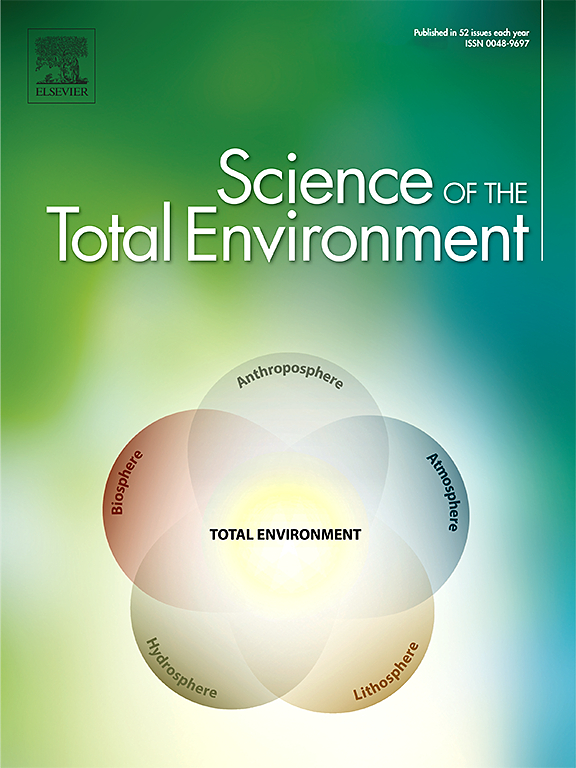Postmortem examinations show human activity impacts over half of seabirds beach-cast in Brazil
IF 8.2
1区 环境科学与生态学
Q1 ENVIRONMENTAL SCIENCES
引用次数: 0
Abstract
The Southern Atlantic Ocean is home to globally significant seabird populations, and off Brazil little is known about health condition in many species. Despite major known threats that these birds face (i.e., bycatch in fisheries, climate change, disease and pollution), plastic ingestion has become an emerging risk to seabirds, of which it is not clear how sublethal effects take part in the health of individuals that wash up along the coastline. Therefore, this study aimed to characterize seabird health of beach-cast seabirds in Brazil to understand how ingested plastic is related to cause of death and other pathologies. We reviewed complete postmortem examination records of 654 seabirds that beached between 2017 and 2021 in Southeastern Brazil. We identified a multitude of causes that lead to the beaching and death of wild seabirds, including natural and anthropogenic causes, and we also found that over half of analyzed seabirds were impacted by anthropogenic activity (fisheries, oil, plastic, and trauma). Fisheries foremost among them have been impacting seabirds in interactive ways, through bycatch, trauma, and by mismanaged associated debris. We found 5 % of birds that ingested plastic had potential debris obstruction in the gastrointestinal tract, and a possible relationship between ingested plastic and starvation either as a cause of death or as a pathological condition. This study highlights that seabird populations that beach in southeastern Brazil are subject to multiple and interacting threats from anthropogenic activities, providing recent data that can serve as baseline for awareness, conservation and public policies in the South Atlantic.

求助全文
约1分钟内获得全文
求助全文
来源期刊

Science of the Total Environment
环境科学-环境科学
CiteScore
17.60
自引率
10.20%
发文量
8726
审稿时长
2.4 months
期刊介绍:
The Science of the Total Environment is an international journal dedicated to scientific research on the environment and its interaction with humanity. It covers a wide range of disciplines and seeks to publish innovative, hypothesis-driven, and impactful research that explores the entire environment, including the atmosphere, lithosphere, hydrosphere, biosphere, and anthroposphere.
The journal's updated Aims & Scope emphasizes the importance of interdisciplinary environmental research with broad impact. Priority is given to studies that advance fundamental understanding and explore the interconnectedness of multiple environmental spheres. Field studies are preferred, while laboratory experiments must demonstrate significant methodological advancements or mechanistic insights with direct relevance to the environment.
 求助内容:
求助内容: 应助结果提醒方式:
应助结果提醒方式:


